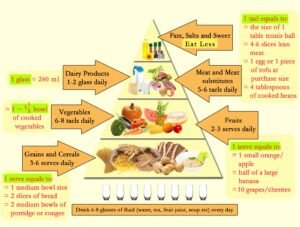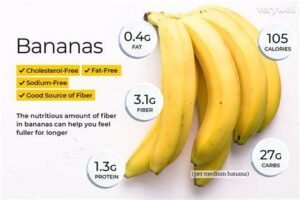PCOS: Let’s Talk About It, Ladies!
Hey there! Let’s talk about something that affects millions of women worldwide: Polycystic Ovary Syndrome, or PCOS. It’s a hormonal imbalance that can cause a bunch of pesky problems, like irregular periods, acne, unwanted hair growth, and trouble getting pregnant.

woman feeling stressed about PCOS symptoms
Don’t worry, you’re not alone in this. Many women deal with PCOS, and the good news is, there are ways to manage it. One important step is to watch what you eat. Yep, your diet can make a big difference!
Let’s dive into how eating the right foods, especially fruits, can help you feel better and take control of your PCOS.
Click to see
Understanding PCOS and Diet
Okay, so you’ve heard of PCOS, but do you really know what it’s all about? Let’s break it down.
PCOS: It’s More Than Just Irregular Periods
PCOS stands for Polycystic Ovary Syndrome. It’s like your body’s hormones are having a party without inviting the right guests.
When your hormones are out of whack, it can cause a bunch of issues, like:
- Irregular periods: Aunt Flo doesn’t always show up when she’s supposed to.
- Acne: Those pesky pimples can be a real pain.
- Unwanted hair growth: Hair in places you don’t want it? Not cool.
- Weight gain: It can be tough to shed those extra pounds.
But here’s the thing: what you eat can actually help balance your hormones and make a big difference in how you feel. Let’s talk about how food can be your PCOS BFF.
Food and PCOS: A Powerful Duo
Did you know that what you put on your plate can impact your PCOS symptoms? It’s true! Certain foods can help regulate your hormones, reduce inflammation, and even help you lose weight. But before we dive into which foods are best, let’s clear up some common myths about PCOS.
PCOS Myths: Busted!
There are a lot of misconceptions out there about PCOS. Let’s set the record straight:
- Myth: PCOS is caused by eating too much sugar.
- Truth: While sugar isn’t your friend, it’s not the only culprit. PCOS is a hormonal imbalance.
- Myth: You have to avoid carbs completely.
- Truth: Not all carbs are created equal. Focus on whole grains and fiber-rich options.
- Myth: Dairy is bad for PCOS.
- Truth: Some people with PCOS might be lactose intolerant, but dairy itself isn’t harmful.
Now that we’ve cleared the air, let’s talk about how to fuel your body with the right foods to manage your PCOS.

person eating a balanced meal
The PCOS-Friendly Plate
A PCOS-friendly diet focuses on whole, unprocessed foods. Think plenty of fruits, vegetables, lean proteins, and whole grains. You’ll also want to limit sugary drinks, processed foods, and unhealthy fats.
- Load up on fruits and veggies: These are packed with fiber, vitamins, and minerals that your body needs.
- Choose lean proteins: Opt for chicken, fish, beans, and tofu.
- Go for whole grains: Brown rice, quinoa, and whole-wheat bread are better choices than white bread and pasta.
- Healthy fats are your friends: Include avocados, nuts, and olive oil in your diet.
- Limit processed foods and sugary drinks: These can wreak havoc on your blood sugar levels.
Remember, it’s important to listen to your body and find what works best for you. Everyone’s PCOS journey is different.

plate filled with colorful fruits, vegetables, and lean protein
Click to see
Benefits of Fruits for PCOS
Let’s dive deeper into why these benefits are so important for managing PCOS.
Fruit: Nature’s Candy for PCOS
You might be thinking, “Fruits are sweet, aren’t they bad for PCOS?” Well, not all fruits are created equal. In fact, many fruits are your PCOS superfoods!

colorful fruit bowl
Here’s why you should add more fruit to your plate:
- Fiber Powerhouse: Fruits are packed with fiber, which helps keep you feeling full and helps regulate your blood sugar levels.
- Antioxidant Army: These little powerhouses fight inflammation, which can be a problem for women with PCOS.
- Sweet Tooth Satisfaction: Fruits can satisfy your sweet cravings without the sugar crash.
Fiber: Your PCOS Best Friend
Fiber is like a superhero for your digestive system. It helps regulate your blood sugar levels, which can be a game-changer for PCOS. When you eat fiber-rich foods, your body absorbs sugar more slowly, preventing those pesky blood sugar spikes.

bowl of oatmeal with berries
Many fruits are packed with fiber, so adding them to your diet is a delicious way to boost your fiber intake.
Antioxidants: Fighting Inflammation
Inflammation is like a silent enemy for women with PCOS. It can contribute to many of the symptoms you’re experiencing. That’s where antioxidants come in. These superhero nutrients help fight inflammation and protect your cells from damage.

antioxidantrich fruits like berries and citrus
Many fruits are packed with antioxidants, making them a powerful weapon in your fight against PCOS.
Blood Sugar Balance: Sweet Success
Keeping your blood sugar levels stable is crucial for managing PCOS. Fruits with a low glycemic index (GI) are your friends. This means they release sugar into your bloodstream slowly, preventing those energy crashes and mood swings.

chart comparing the glycemic index of different fruits
Best Fruits for PCOS
While these fruits are excellent choices, it’s important to enjoy a variety of fruits as part of a balanced diet.
Berry Good Choices
Let’s talk berries! These little powerhouses are packed with nutrients that can work wonders for PCOS.

variety of berries
- Blueberries: These tiny gems are loaded with antioxidants and fiber. They can help regulate blood sugar and reduce inflammation.
- Strawberries: Sweet and delicious, strawberries are low in sugar and high in vitamin C. They can help boost your immune system and improve skin health.
- Raspberries: These little red beauties are packed with fiber and antioxidants. They can help with digestion and blood sugar control.
- Blackberries: Another fiber-rich option, blackberries are also a good source of vitamin K, which is important for bone health.
Apples: A Daily Treat
An apple a day keeps the doctor away, right? This old saying holds true for women with PCOS. Apples are packed with fiber and antioxidants, and they can help keep you feeling full.
Citrus Surprise
Citrus fruits like oranges, grapefruits, and lemons are not just refreshing; they’re also beneficial for PCOS. They’re packed with vitamin C, which helps boost your immune system, and they can help improve insulin sensitivity.

citrus fruit platter
Avocado: The Healthy Fat
Avocado might not be the first fruit that comes to mind, but it’s definitely worth including in your PCOS diet. It’s packed with healthy fats, which can help regulate hormones and keep you feeling satisfied.

avocado
Incorporating Fruits into Your PCOS Diet
Remember, consistency is key. By incorporating fruits into your daily diet, you’re taking a big step towards managing your PCOS symptoms.
Make Fruit Your Friend
Now that you know which fruits are your PCOS superfoods, let’s talk about how to incorporate them into your daily routine.
- Start your day right: Enjoy a bowl of fresh fruit with yogurt or a sprinkle of nuts for breakfast.
- Snack smart: Keep a piece of fruit on hand for a healthy and satisfying snack.
- Add fruit to your meals: Top salads with berries, or add sliced apples or pears to your sandwiches.
- Smoothie time: Blend your favorite fruits with yogurt, spinach, and a splash of plant-based milk for a delicious and nutritious drink.

smoothie bowl with fresh fruits
Fruit and PCOS: Tips and Tricks
- Watch your portions: While fruits are healthy, it’s important to watch your portion sizes.
- Choose whole fruits over juice: Juices often lack fiber and can spike your blood sugar.
- Experiment with different fruits: Don’t be afraid to try new fruits and find your favorites.
- Consider fruit salads: Mix and match different fruits for a delicious and refreshing treat.
Beyond Fruits: PCOS-Friendly Diet Essentials
It’s important to find a balance of the below food groups in your diet. By combining fruits, vegetables, lean proteins, whole grains, and healthy fats, you’re giving your body the nutrients it needs to thrive.
It’s All About Balance
While fruits are a fantastic addition to your PCOS diet, they’re just one piece of the puzzle. Let’s talk about other essential foods to include in your meals.
Protein Power
Protein is essential for building and repairing tissues. It also helps keep you feeling full and satisfied. Good protein sources for PCOS include:
- Lean meats: Chicken, turkey, and fish
- Legumes: Beans, lentils, and chickpeas
- Greek yogurt: A good source of protein and calcium
Healthy Fats
Don’t be afraid of fats! Healthy fats are essential for hormone balance. Look for these options:
- Avocado: Packed with healthy monounsaturated fats.
- Olive oil: A staple in the Mediterranean diet.
- Nuts and seeds: Provide healthy fats and fiber.
Whole Grains: Your Body’s Fuel
Whole grains provide sustained energy and help regulate blood sugar levels. Choose options like:
- Brown rice: A nutritious and versatile grain.
- Quinoa: A protein-packed option.
- Whole-wheat bread: A better choice than white bread.
Dairy Dilemma
Dairy can be a tricky one for women with PCOS. Some people find it bothersome, while others tolerate it well. If you choose to include dairy, opt for low-fat or fat-free options.
The Power of Plants
Legumes like lentils, chickpeas, and black beans are packed with protein, fiber, and other essential nutrients. They’re a great meat alternative and can help manage blood sugar levels.

colorful lentil soup
PCOS and Other Lifestyle Factors
It’s important to consult with your healthcare provider before starting any new diet or exercise program. They can provide personalized guidance and support.
Beyond the Plate: A Holistic Approach
While diet is a cornerstone of PCOS management, it’s not the only factor that plays a role. Let’s explore other lifestyle changes that can make a significant difference.
Move Your Body
Regular physical activity is essential for managing PCOS symptoms. Exercise helps regulate blood sugar levels, improve insulin sensitivity, and boost your mood. Aim for at least 150 minutes of moderate-intensity exercise per week.

woman doing yoga
Stress Less
Chronic stress can worsen PCOS symptoms. Incorporate stress-management techniques into your routine:
- Meditation: Find a quiet space to practice mindfulness.
- Yoga: Combines physical movement with relaxation.
- Deep breathing exercises: A simple yet effective way to reduce stress.

person meditating
Prioritize Sleep
Getting enough quality sleep is crucial for overall health and hormone regulation. Aim for 7-9 hours of sleep per night.

person sleeping peacefully
Weight Management
For many women with PCOS, weight management is an important aspect of managing symptoms. Losing even a small amount of weight can make a big difference. Focus on sustainable lifestyle changes rather than quick fixes.

person using a scale
You’ve Got This!
Managing PCOS can feel overwhelming, but remember, you’re not alone. By making informed choices about your diet and lifestyle, you can take control of your symptoms and improve your overall well-being.

woman feeling empowered and confident
Key takeaways:
- Diet matters: Incorporate plenty of fruits, vegetables, lean proteins, and whole grains into your diet.
- Balance is key: Find a healthy balance between different food groups.
- Listen to your body: Pay attention to how different foods make you feel.
- Lifestyle matters: Exercise regularly, manage stress, prioritize sleep, and consider weight management if needed.
- Seek support: Don’t hesitate to talk to your healthcare provider or a registered dietitian for personalized guidance.
Remember, small steps can lead to big changes. Be patient with yourself and celebrate your successes along the way. You’ve got this!
Additional resources:
- [Link to PCOS organizations or support groups]
- [Link to reputable health websites]
By combining a PCOS-friendly diet with a healthy lifestyle, you can take control of your symptoms and live a fulfilling life.





